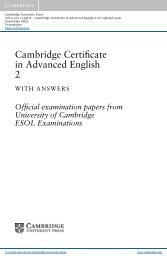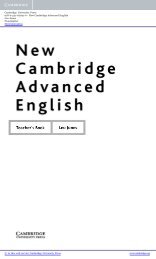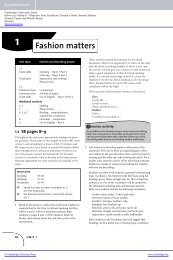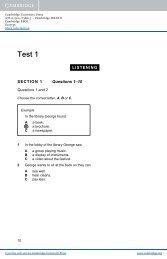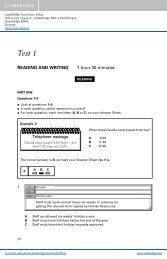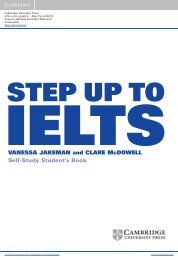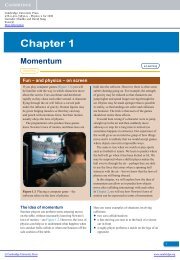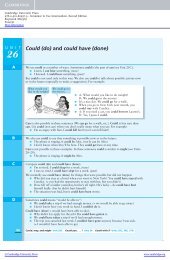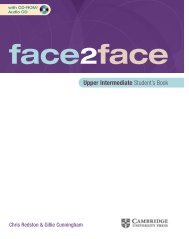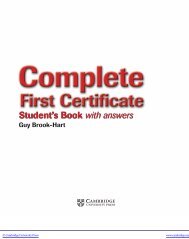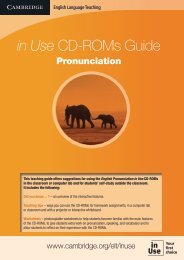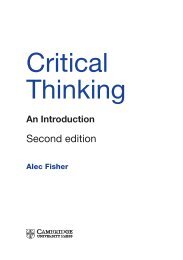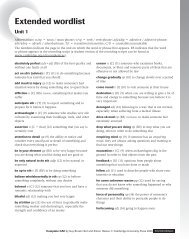Skills for Study Level 2 Teacher's Book - Cambridge University Press
Skills for Study Level 2 Teacher's Book - Cambridge University Press
Skills for Study Level 2 Teacher's Book - Cambridge University Press
You also want an ePaper? Increase the reach of your titles
YUMPU automatically turns print PDFs into web optimized ePapers that Google loves.
Part CInvestigatingThe aim of this lesson is <strong>for</strong> students to improve their researching skills through:• understanding reliability and validity• analyzing the suitability of samples.Note: The aim of Part C is to give students an introduction to critically analyzingresearch evidence, and thinking about things like reliability and validity, as wellas the impact of sample sizes and type of data gathered. This section is weightedheavily towards social science / humanities research as it tends to give examplesof research involving human subjects, though arguably the same principles applyto measurements of other things – animals, physical artefacts, secondary data,and so on.As be<strong>for</strong>e, this is intended to give an introduction to this type of issue at a levelwhich students can understand, so it is rather basic in places (<strong>for</strong> instance thesection on validity gives only an idea of some of the types of validity) and makesno attempt to be exhaustive.1 Understanding reliability and validity1aSuggested answersResearch 1:The validity of the study is low, as the findings are based on a limited sampleof people between 19 and 23, and males are under-represented; there<strong>for</strong>e theconclusion that the universal ‘best’ height <strong>for</strong> a table is 1.2 metres is debatable.Also, there may be an issue with the test itself, as kitchen tables are not usedonly <strong>for</strong> preparing sandwiches.Research 2:The validity of this study is low. The findings only weakly suggest that thelever‐type door handles are easier to use (only about half of the respondentsfound them easier to use, and the test results suggest only a slight increase inpressure is needed). This does not support a strong claim that rounded doorknobs are ineffective.Research 3:The validity of this study is also low. A small sample size is used which doesnot support a strong claim that computers are useful in the kitchen. Also, only13 of the respondents replied ‘yes’, so the results are hardly conclusive. Finally,there is an issue with the construct being tested: ‘feeling com<strong>for</strong>table’ havinginstructions on screen is not the same as saying that the computer screenmakes cooking the meal easier.Unit 4 Part C ∙ Investigating 121



